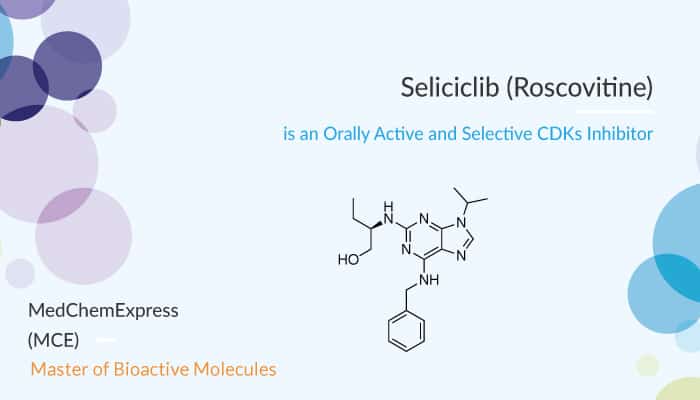Cyclin-dependent kinases (CDKs) are serine/threonine kinases whose activity depends on a regulatory subunit-a cyclin. Based on the sequence of the kinase domain, CDKs belong to the CMGC group of kinases, along with MAPKs, Gsk3β, DYRK family and CDK-like kinases. There are around 20 Cyclin-dependent kinases (CDK1-20) known till date. CDK1, 4 and 5 paly an important role in cell cycle, and CDK 7, 8, 9 and 11 take part in transcription. CDKs play important roles in the control of cell division and modulate transcription in response to several extra- and intracellular cues.
It is abundantly clear that the CDK family is central to multiple signaling pathways controlling transcription and cell-cycle progression. As a consequence of their importance in multiple processes, CDKs are frequently mutated or deregulated in disease. A classic example is the almost universal deregulation of the CDK-cyclin-Rb pathway in cell-cycle entry during malignant transformation. Hence, CDK family is an important target for cancer or other diseases.
 Seliciclib (Roscovitine or CYC202) is a potent, selective and orally active CDKs inhibitor. Seliciclib preferentially inhibits CDK2, CDK7 and CDK9, which alter the growth phase or state within the cell cycle of treated cells. Moreover, Seliciclib inhibits the ability of high glucose cultured NRK52E cells to migrate and invade. Compare with normal controls, Seliciclib is effective in decreasing tubulointerstitial fibrosis via the ERK1/2/PPARγ pathway in diabetic rats. Seliciclib significantly reduces the rate of tumor growth and increases survival of treated mice. What’s more, Seliciclib is effective for non-small cell lung cancer (NSCLC), Cushing’s disease, leukemia, HIV infection, Parkinson’s disease, herpes simplex infection, cystic fibrosis and chronic inflammation disorders.
Seliciclib (Roscovitine or CYC202) is a potent, selective and orally active CDKs inhibitor. Seliciclib preferentially inhibits CDK2, CDK7 and CDK9, which alter the growth phase or state within the cell cycle of treated cells. Moreover, Seliciclib inhibits the ability of high glucose cultured NRK52E cells to migrate and invade. Compare with normal controls, Seliciclib is effective in decreasing tubulointerstitial fibrosis via the ERK1/2/PPARγ pathway in diabetic rats. Seliciclib significantly reduces the rate of tumor growth and increases survival of treated mice. What’s more, Seliciclib is effective for non-small cell lung cancer (NSCLC), Cushing’s disease, leukemia, HIV infection, Parkinson’s disease, herpes simplex infection, cystic fibrosis and chronic inflammation disorders.
All in all, Seliciclib, a potent, selective and orally active CDKs inhibitor, preferentially inhibits CDK2, CDK7 and CDK9.
Reference:
Malumbres M, et, al. Genome Biol. 2014;15(6):122.